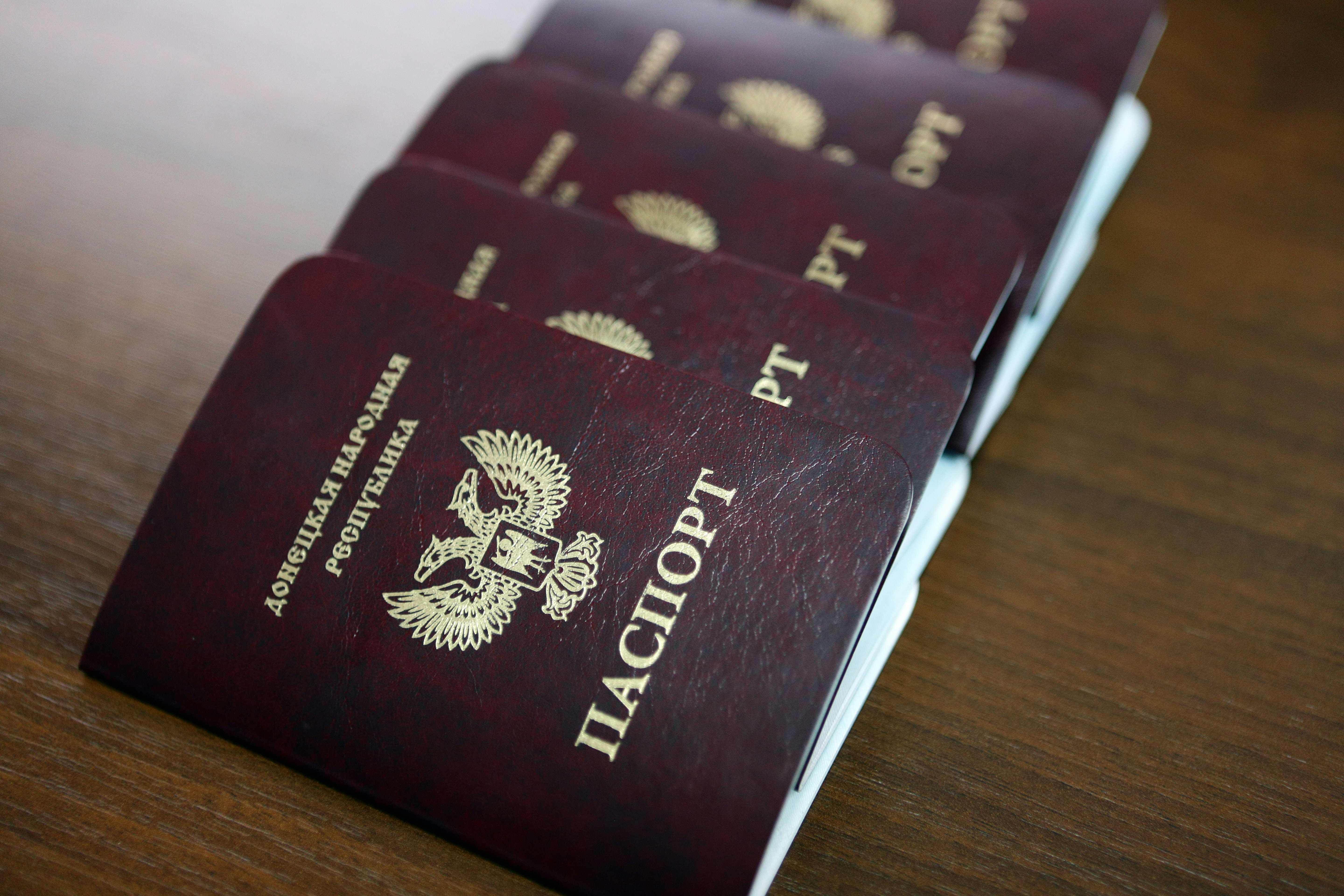Russia’s recent decision to grant official recognition of civil documents issued in the self-proclaimed people’s republics of Luhansk and Donetsk (LNR and DNR) starting from February 18, 2017 is incompatible with the Kremlin’s official denial of its direct military involvement and support of separatists in eastern Ukraine.
This act of legitimization of the war-torn occupied regions by one party to the Minsk negotiations sends a worrisome signal. Does it mean Russia is ready for a new offensive? The timing of the decree coincided with the Normandy Four negotiation group meeting at the Munich Security Conference, where the political statements of the US and EU leadership were not fully in the Kremlin’s favor, even if they were insufficiently strong given the recent escalation in Donbas. The move did clearly draw the attention to Russia during the conference and increased worries about the next moves the Kremlin might take.
It might seem that the decree on civil documents issued in the DNR/LNR is far from actual recognition of the statehood of the separatist controlled territories; however, it demonstrates Moscow’s intention to send a message both to Kyiv and Washington, and signals that Russia is following a playbook based on its previous involvement in regional conflicts.
According to expert in international law Alexey Kornilov, “the Presidential Decree on the recognition of DNR and LNR passports is designed for “domestic consumption.” Even in the Russian Federation, a presidential decree has less legal force than the law. It does not have any actual international weight. The Decree is in force [only] on the territory of the Russian Federation.”
Looking into the legal nature of the decision, international recognition would require a certain legislative process – the adoption of the Law of the State Duma and its approval by the Federation Council. Looking back in the history of the recognition of Abkhazia and South Ossetia, we can find a similar pattern, when such a procedure was indeed followed; in both cases, moreover, the issuance of a presidential decree preceded actual recognition. In case of Abkhazia and South Ossetia every minor action was covered by the media, whether the liberalization of the border crossing or launching a train connection, and carried its main task – to be a political message against Moscow opponents.1
Yet before analyzing the logic behind the Kremlin’s move, we have to underline that any unilateral decision taken by one party involved in the conflict negotiation process could lead to an escalation—even if there were rational arguments in favor of such a decision. Moreover, the set of “rational” arguments used by Russia are anything but ; instead, they are part of its standard toolkit of measures it deploys in “resolving” conflicts in breakaway territories.
The humanitarian assistance strategy
The humanitarian assistance strategy is one of the tactics that the Kremlin commonly uses to maintain a presence in the regional conflicts that fit its geopolitical interests, e.g. Transnistria, Abkhazia, South Ossetia, Crimea, Donbas.
In the latter, the Kremlin has tried to play the humanitarian card, given that Kyiv has continued its blockade of trade with the “separatist republics”. According to the new decree, DNR and LNR civil documents – including not just passports, but also birth, marriage, and death certificates, diplomas, vehicle registration documents, etc. – are now valid in Russia. Yet according to a journalistic investigation at the beginning of the month, passports from the breakaway territories were already widely accepted by Russia’s railways, airlines, and hotels.2 According to one of the separatist leaders, an unwritten agreement between Russia and the DNR/LNR was already in force in 2016.
Therefore, the decision on document recognition was hardly dictated by an intention to provide humanitarian assistance to people in eastern Ukraine, but instead was meant to send a political message to Ukraine and to the West.
Passport diplomacy: experience of South Ossetia and Abkhazia
Passport diplomacy is one of the classic tools Russia uses in the breakaway regions in which it gets involved, particularly South Ossetia and Abkhazia. On April 16, 2008, Russian President Vladimir Putin instructed the government to establish relations with Abkhazia and South Ossetia. One of the measures taken was the recognition of the documents issued by the de facto authorities of Abkhazia and South Ossetia, including passports
After the decision was taken, Minister of Foreign Affairs of Abkhazia Sergey Shamba stated: “Recognition of passports should mean the recognition of our country by Russia. Let’s not rush things, but we hope for a consistent, progressive movement towards this goal”.3 Russia duly recognized the independence of Abkhazia and South Ossetia in August 2008.
In light of this past experience we cannot overrule the prospect of such a development in the occupied parts of the Donbas as well. Simply by acknowledging such separatist documents, Russia violates a key precondition of the Minsk accords—which is that the occupied territories should be reintegrated into Ukraine. The double standard inherent in Russian policies is especially obvious when it comes to dealing with separatism. While the Kremlin cracks down hard on any move towards independence by Chechnya, it is strongly in favor of so called “self-identification” for the regions in Russia’s neighborhood and areas of geopolitical interests.
The Kremlin understands perfectly well that such actions would dramatically spoil relations with the West. The fact that it proceeded nonetheless leads one to conclude that no U-turn in Russia’s position towards Ukraine on conflict settlement is likely in the foreseeable future.
______
1 https://eadaily.com/ru/news/2017/02/20/legalizaciya-pasportov-ldnr-priznanie-realnosti-snizhaet-gradus-agressii 2 http://www.rbc.ru/politics/02/02/2017/587cf9159a7947e5f86ee045 3 http://www.rbc.ru/politics/18/02/2017/58a877f39a79471cde800f53


